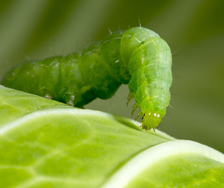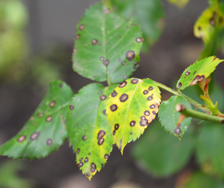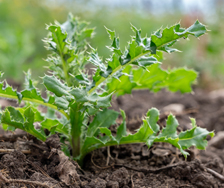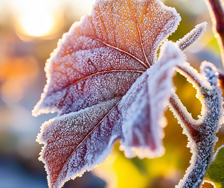Yates Account
Join now
Create a Yates account today!
Sign up to join the Yates Garden Club for monthly e-mails packed with seasonal inspiration, tips for success & exclusive promotions.
Plus if you’re a Garden Club member you can take part in the Yates Growing Community - a blog to share successes, get advice & win prizes in fun challenges along the way!

Forgot password
Enter the email address associated with your account, and we'll email you a new password.

When you’re sowing seeds, you’ll get the best possible results by regulating the environment around them, while they germinate.
There are four key environmental factors to think about: if you get them right, you can expect consistent success.
Here's how to take control of the process.
Plants are diverse by nature. They’re adapted to varying climates and countless natural habitats, so they all have unique needs and preferences. To get the best possible results when raising plants from seed, it’s important to know the environment each plant prefers…so you can provide it with those conditions.
Many seeds are easy to grow; they aren’t fussy about conditions, so they’ll seem to leap out the soil with very little effort. In contrast, some seeds are more demanding about their environment, so they’re more challenging to grow. But no matter what you’re sowing, you’ll always get the best possible results from managing the environment around your seeds, to give them the conditions they like best.
Fortunately, the key information you’ll need is printed on seed packets!

The four critical environmental factors when germinating seeds are:
-
Sowing Depth
-
Light
-
Soil Moisture
-
Soil Temperature
For a quick breakdown on each factor, read on.

1. Sowing Depth
Sowing depth is influenced by the physical size of the seed, along with how much light it needs to germinate.
- As a rule, fine seed should be barely covered.
- The rule of thumb for medium-sized seeds is to plant to a depth of about 6mm.
- Larger seeds are planted deeper. Peas and beans, for example, can be planted 25mm deep. These seeds have bigger reserves of stored energy, so they can push themselves up through soil further than small seeds can.

2. Light Levels
Some seeds need to be contacted by sunlight for germination to occur (particularly very tiny seeds). At the other end of the spectrum, some seeds need to be totally protected from light during germination. Check the back of the seed packet for detail before you sow.
Seeds that Need Light
- Press especially fine seeds into the surface of pre-moistened seed raising mix.
- Cover the sowed area with plastic wrap or a sheet of glass.
- Keep in bright shade.
- Don’t water very fine seeds with a hose or watering can: instead, mist them with a fine spray. Alternatively, immersing the base of a seed container in a tray of water (so the surface of the mix stays just above the waterline) allows the mix to absorb water from below.
- Varieties of light-loving seeds include lettuce, ageratum, alyssum, antirrhinum, aquilegia, begonia, campanula, coleus, feverfew, impatiens, petunia, primula, salvia and stock.

Seeds that Need Darkness
- Cover up your sowing area with a sheet of newspaper or cardboard. Remove the cover immediately when green shoots become visible.
- Varieties that need darkness include calendula, cornflower, delphinium, forget-me-not, gazania, nasturtium, pansy, schizanthus, sweet pea, verbena, viola, coriander.

3. Soil Moisture
Seeds have differing moisture requirements. Some seeds are protected by a hard coat that needs exposure to moisture to help break it down before they can germinate. In contrast, many seeds have a permeable coat that absorbs water easily, so they’re at risk of rotting if they’re sowed into waterlogged soil.
- To prepare soil or seed raising mix for sowing, soak it well to pre-moisten it. If you water after sowing, there’s a risk of seeds being swamped or washed out of the soil. A great method is to bath your filled seed container in a tray of water, leaving it to soak for a few hours before you sow.
- Pre-soaking seed raising mix is a great opportunity to add Yates Thrive Natural Seaweed Tonic to the water. Seaweed is an excellent biostimulant for soil or seed mixes, plus it's full of valuable trace elements and plant growth hormones that boost root growth.
- Some very fine seeds, (e.g. some petunias) may be supplied ‘pelletised,’ meaning they’re coated with a layer of inert material to make them easier to handle. These should be watered more frequently than uncoated seeds.
- Sow large seeds, like sweet peas, sweet corn, peas, beans, and broad beans, into moist soil. After you’ve sowed and until the seedlings emerge, water very sparingly to avoid the seeds rotting. Poke your finger into the soil – if it’s moist, don’t water. Also, don’t pre-soak these seeds before you sow.
- Keep soil or seed raising mix consistently moist for slower germinating seeds (e.g. pansies, which can take 21-28 days). Don’t over-do the water, but it’s essential to make sure the soil doesn’t dry out. Even a short period of dryness can kill off seeds during the germination process because delicate developing roots and shoots often can’t rehydrate after they’ve become desiccated.
- After seedlings have emerged, water thoroughly, but less frequently to encourage the development of vigorous, strong roots.

4. Soil Temperature
Soil temperature is critically important for successful seed germination. Plants have a preferred temperature range for germination. At the lowest temperature in their range, they can germinate, but their strike rate is reduced, and growth is slow. As soil temperature gets closer to the plant’s ‘sweet spot,’ the strike rate improves markedly. If you wait until the temperature suits the plant, you end up with lots more seedlings!
- Some plants are adapted to cold climates, where freezing winter soil would normally trigger them to germinate. You can duplicate these conditions in NZ by leaving seeds in the fridge for a few weeks before you sow them. Examples are hellebores, rudbeckia, and lupins.
- In contrast, some heat-loving seeds need a soil temperature of 25°C or more to activate germination. Chillies and eggplants are great examples.
- Using a heat mat and an inexpensive plastic 'mini-greenhouse' with a removable lid makes it easier to control warmth and moisture levels. If you're sowing tropical vegies, or heat lovers like the fiercest chillies, this equipment can make the difference between success and disappointment.

- Soil needs to be at a consistent warmth before sowing directly into the garden. If you have a thermometer you can poke into the soil, it should be reading above 10°C for brassicas and carrots, and comfortably over 15°C for tomatoes, corn, and zucchini. Wait until the soil is at least 20°C to sow heat-lovers like capsicums or chillies.
- Germination failures in early spring are usually due to summer plants (like tomatoes or capsicums) being sown too early.
- Seeds can be sown in pots in a warm, sheltered spot, then transplanted out into the garden when conditions are more favourable.
- A cheap hint for raising temperature-sensitive seeds, like petunias, in early spring is to sow into a 15cm diameter pot, water well and enclose the pot in a plastic bag that’s sealed around the pot rim. Place the pot on a gentle source of heat – a hot water cylinder or a refrigerator will work nicely. As soon as seedlings appear, remove the plastic bag and move the seedlings outdoors to harden them off.

Fertilising
- Seeds already contain all the stored nutrients they need, to get them through the germination process and to develop their first true leaves. After seedlings have developed more than two leaves, you can begin fertilising regularly with Yates Thrive Fish Blood & Bone Plant Food.

Sowing Direct into the Garden
- Larger seeds are usually the most suitable for direct sowing.
- Vegetable seed examples are beans, peas, sweetcorn, pumpkins, and cucumbers.
- Flower seed examples are nasturtiums, marigolds, sweet peas, and zinnias.
- To prepare the soil, thoroughly dig it over, so it has a fine, crumbly structure.
- Supercharge your seedling growth by mixing in a handful of Yates Dynamic Lifter Organic Plant Food while you’re preparing the soil.
- If your soil is heavy and holds water, put down a layer of Yates Black Magic Seed Raising Mix where the seeds are to be sown.
- Mark out shallow rows to the appropriate depth with the edge of a flat board.
- Scatter seed thinly along the rows and lightly cover it with Yates Black Magic Seed Raising Mix.
- Water well, using a fine, gentle spray.

Sowing into Containers
- Use Yates Black Magic Seed Raising Mix rather than garden soil. Seed raising mix has a fine texture that allows oxygen to penetrate to tiny new roots, plus it drains much better.
- Most potting mixes aren’t suitable for seed raising because they’re too dense and chunky and usually contain enough fertiliser to burn delicate seeds. However, you can use potting mix as a base underneath a 3cm layer of seed raising mix.
- Check the moisture level of the mix regularly – don’t let it dry out! Seed raising mix in containers tends to dry out much faster than soil in a garden.
- Keep pots in a warm, brightly lit spot, sheltered from wind.
- Seeds can be started indoors, but seedlings may become thin and leggy if they’re left inside too long.
- Seedlings can be transplanted into their final position once they’re large enough to handle.
- As the seedlings grow, harden them off by gradually increasing their exposure to sun and heat.

















Share
Share this article on social media